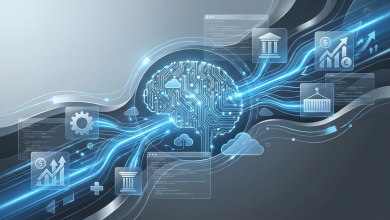
The legal field is one of the world’s most heavily regulated and complex industries. It’s also prone to inefficiencies, delays and errors that can increase costs and decrease access to justice.
However, recent advancements in artificial intelligence (AI) technology may revolutionize the legal industry by improving efficiency, speed and accuracy. Here are the potential future use cases of AI in law and its impact.
1. Legal Research
One of the most promising uses of AI in the legal industry is research. Lawyers spend significant time researching cases, statutes and regulations to support their arguments and make informed decisions. However, this process can be time-consuming and expensive. AI can help streamline it.
AI-powered legal research tools can quickly search large databases and provide relevant information in seconds. This saves lawyers time and allows them to focus on more complex tasks requiring expertise.
2. Predictive Analysis
Another use of AI in the legal industry is predictive analytics, which involves using historical data to predict future events. In the legal sector, predictive analytics can help lawyers forecast case outcomes.
By analyzing past cases, AI can identify patterns and predict the likelihood of success or failure in a particular case. This can help lawyers decide which cases to pursue and how to allocate resources, improving efficiency.
3. Administrative Tasks
AI can also automate administrative tasks like scheduling appointments and managing paperwork. This can free up time for lawyers to focus on more complex tasks requiring expertise. AI-powered chatbots can advise clients, helping them navigate legal systems and resolve simple issues. This can improve access to legal services for individuals who may not be able to afford them.
4. Contract Analysis
The legal sector can also use AI in contract review and analysis. Contracts are the foundation of legal agreements, and ensuring they are drafted and reviewed accurately is essential. AI-powered tools can identify clauses that may be problematic or noncompliant with regulations.
These tools can also help identify patterns and anomalies indicating fraud or other illegal activities. This can help lawyers quickly review contracts and identify potential issues, reducing the risk of errors and saving time.
5. Dispute Resolution
The dispute resolution domain is one of AI’s most significant potential effects on the legal sector. All parties involved in a disagreement may find it time-consuming, expensive and emotionally taxing. AI-powered conflict resolution tools can assist parties in resolving issues quickly and effectively.
AI can determine the best resolution techniques by analyzing data from prior situations. They can also offer an unbiased third-party viewpoint, lessening the conflict’s emotional intensity.
6. Courtroom Litigation
Many jurisdictions worldwide already use AI to adjudicate. For instance, Estonia has implemented artificial intelligence to tackle complex cases and resolve disputes. Algorithms are already used to determine sentences in the U.S.
Consequently, lawyers will continue to employ cutting-edge AI to resolve ever-more complex legal issues and gather, examine and implement case law. This will result in more automated analytical work for attorneys and less courtroom litigation overall.
7. Reduced Human Error
AI can reduce human error in the legal field. Finalizing a contract takes a while, and a few mistakes might be found when reviewing legally binding documents. In this respect, AI-powered contract review services have a lot of potential because they significantly speed up the process and assist in catching mistakes people frequently miss.
Challenges and Concerns of AI in the Legal Field
While the potential benefits of AI in the legal industry are significant, it is important to address some challenges and concerns. Here are some of the most pressing issues facing using AI in law.
Transparency
AI algorithms can be complex and challenging to understand, making it difficult for individuals to know how decisions are made. This lack of transparency can undermine trust in the legal system and lead to challenges. To address this concern, AI developers must ensure their algorithms are transparent and explain how conclusions are reached.
Privacy
Privacy is also a concern regarding AI in the legal industry. The system deals with sensitive personal information, which is essential to protect. AI developers must ensure their algorithms comply with relevant data protection laws and regulations.
Bias
AI algorithms are only as unbiased as the data they are trained on. Biased information will not provide clear results. This can have severe implications in the legal industry, where impartial decision-making is critical. To address this concern, AI developers must ensure their algorithms are trained on neutral data and regularly monitor for issues.
Using AI in the Legal Field
AI has already shown tremendous potential in the legal industry by automating mundane tasks, improving research and even predicting case outcomes. It will likely play an increasingly important role as it evolves. While there are challenges to be overcome, such as data privacy and transparency, responsible implementation of AI can lead to a more efficient, effective and just legal system.




